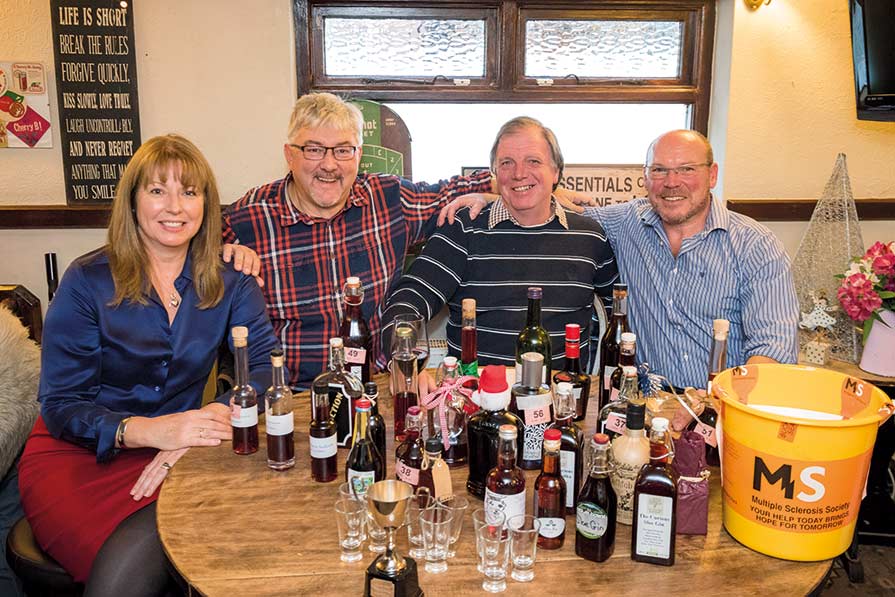Sipping sloe gin during winter is a tradition many families across Britain have been indulging in for generations.
Simple to make, but taking several months to mature, it’s the perfect thing to prepare for the festive season.
Most people know what goes into it- sloes, gin and sugar – but how the mixture came about is not so commonly known.
In a link more interesting than it first sounds, the drink’s history is inextricably tied to the history of land enclosure.
Beginning in the 17th century, Parliament passed a series of measures known as the Enclosure Acts, legislation that transformed common land into individual dwellings and farmsteads.
In order to mark these new borders, it was proposed that hedgerows be grown, and the thick, prickly blackthorn was selected as the best fencing nature had to offer.
A by-product of this decision was an abundance of sloe berries and the eco-minded rural folk sought a way to avoid wasting the yearly harvest that didn’t involve eating it.
Over 400 years later, the popular winter tipple has spawned a host of independent producers, each of which covet the chance of winning The Sloe Gin World Championship.
Now in its seventh year, the event was held at the George Inn, Frant, on December 16, with titles including Champion Artisan Sloe Ginster and Homemade Sloe Ginster up for grabs.
Sweetness
The winner of the homemade title was Kevin Ladley, of Dartford,who was praised by category judge David Bennett for the ‘colour, bouquet, sweetness and character’ of his sloe gin.
Pub Landlord George Elliott said: “Those are the four categories in which gins are judged. They are all marked out of ten.
“David Bennett was the judge this year and last. It’s quite hard to find a judge as the thought of tasting 30 sloe gins puts a lot of people off.”
Enthusiasts packed into the pub to watch the event, and get a taste of the products after judging, with over 20 of the entrants being represented in person.
Mr Elliott said: “Some of the entrants are from the local area, but plenty of others are from farther afield, such as those in the commercial category.”
One producer was the Edinburgh-based Demijohn, which was crowned Champion Artisan Sloe Ginster for the second year running.
And although it has not lost sight of its roots as a fun event, it has become a bit more professional since it was originally conceived when local amateurs began arguing over which recipe was best.
“They all made a bottle, brought it in at this time of year and judged it themselves. It got pretty hilarious, as the judges tended to get drunk by the tenth tasting,” said Mr Elliott.
Amateur entrants each paid £5 to take part, with the commercial contestants making a larger contribution. All money raised being donated to the MS Society to help those with multiple sclerosis.








